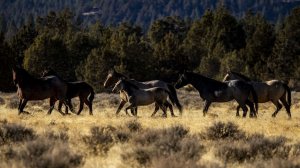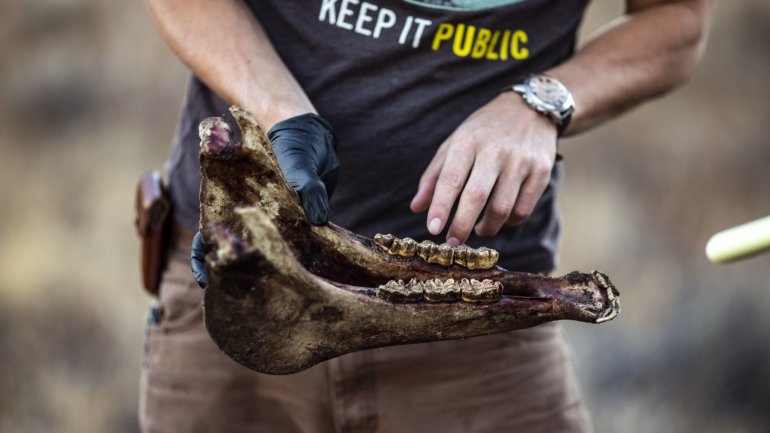It has been 10 days since he killed here, but the smell of death still fills the air.

Pieces of the wild horse are left scattered among the dirt and grass. A red rib, not yet sun-bleached, lies in the dirt. A vertebra of spine over by a sage bush. Tufts of the horse’s dark mane sit among the black and brown lava rocks. Coyotes, vultures and bobcats have already been here, picking through the killer’s leftovers.
Less than 300 feet away, a herd of wild horses graze, unfazed by their proximity to the dismembered 10-month-old foal.
Prowling a home range of about 386 square miles is an adult male mountain lion known as M166. In the last year, while his feline counterparts have feasted mainly on deer, this cougar has garnered a reputation as a horse killer par excellence.
Read the full story on LATimes.com.






















